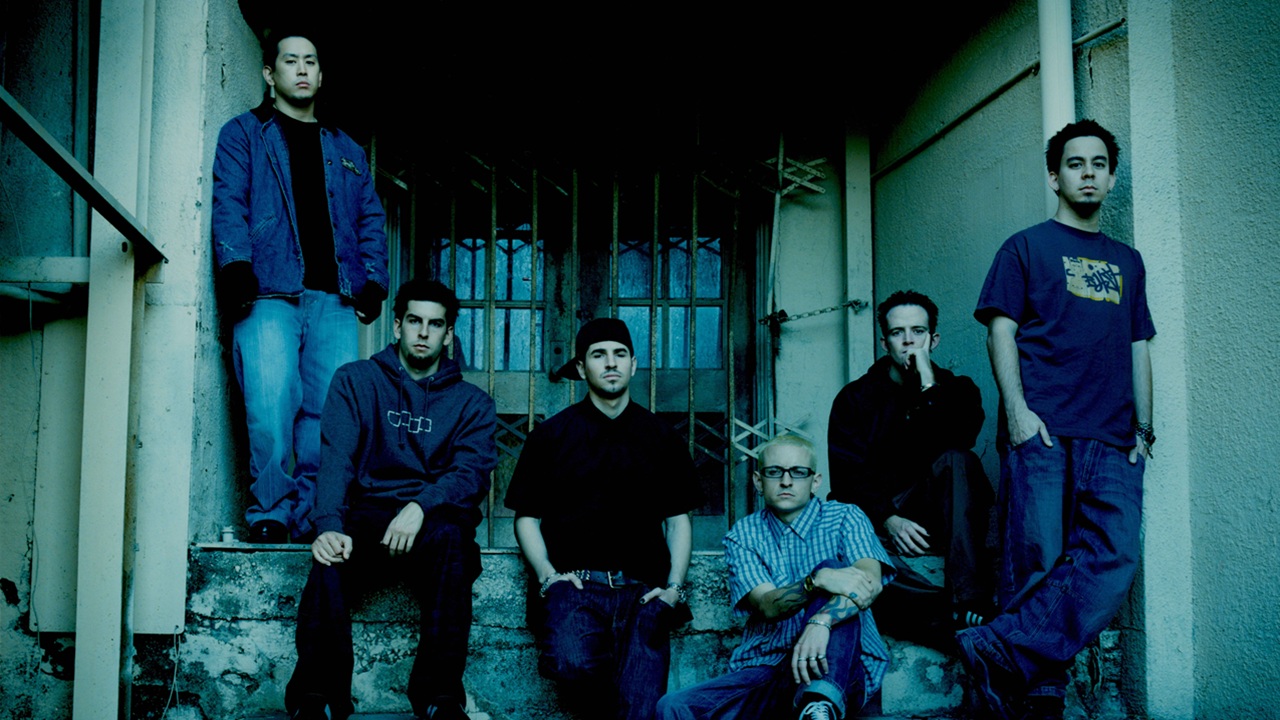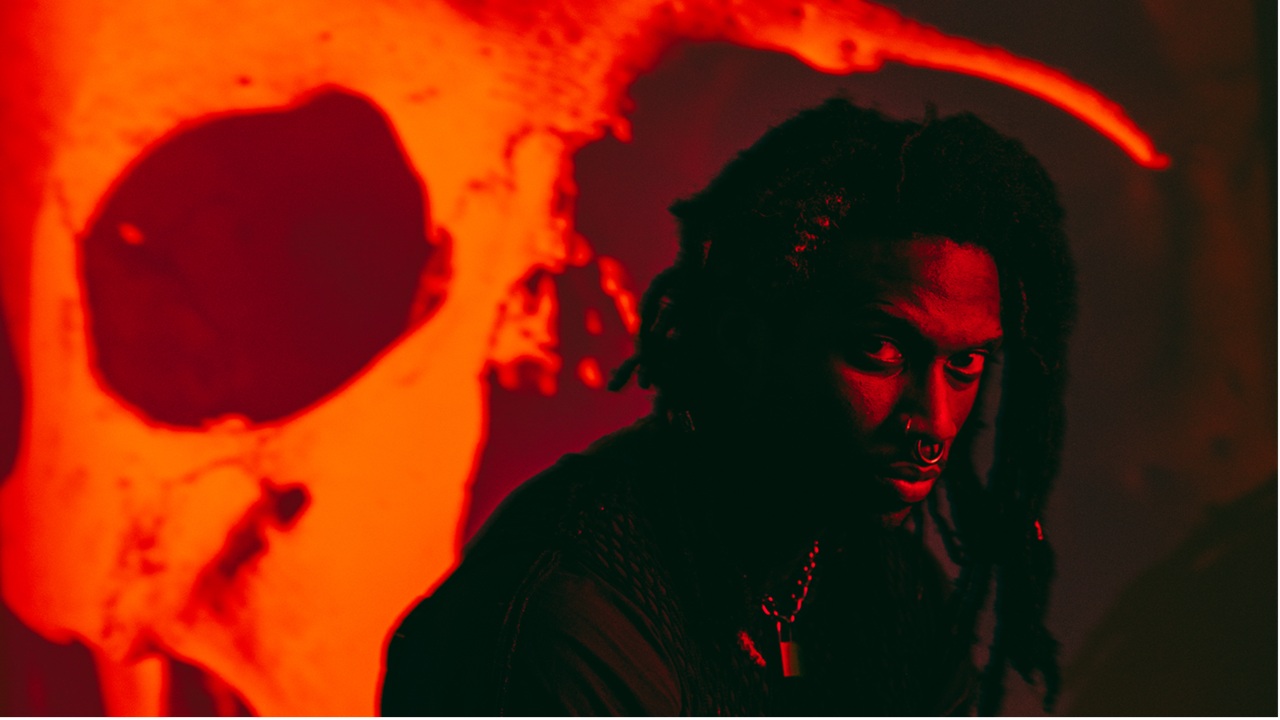"We refused to believe we didn't have something special." From triumph to tragedy and triumph again, how Linkin Park became the first true metal breakout of the 21st century
Linkin Park are among the most successful and influential bands the entire nu metal movement ever produced

Select the newsletters you’d like to receive. Then, add your email to sign up.
You are now subscribed
Your newsletter sign-up was successful
Want to add more newsletters?

Every Friday
Louder
Louder’s weekly newsletter is jam-packed with the team’s personal highlights from the last seven days, including features, breaking news, reviews and tons of juicy exclusives from the world of alternative music.

Every Friday
Classic Rock
The Classic Rock newsletter is an essential read for the discerning rock fan. Every week we bring you the news, reviews and the very best features and interviews from our extensive archive. Written by rock fans for rock fans.

Every Friday
Metal Hammer
For the last four decades Metal Hammer has been the world’s greatest metal magazine. Created by metalheads for metalheads, ‘Hammer takes you behind the scenes, closer to the action, and nearer to the bands that you love the most.

Every Friday
Prog
The Prog newsletter brings you the very best of Prog Magazine and our website, every Friday. We'll deliver you the very latest news from the Prog universe, informative features and archive material from Prog’s impressive vault.
From the very beginning, Linkin Park knew they were creating something significant. “Nobody out there sounds like us,” vocalist Chester Bennington said, in their first major Metal Hammer feature in January 2001. “Sure, there are comparisons that can be made, but we sincerely believe we’re doing something unique.”
Back then, these six 20-somethings from LA were already on an upswing thanks to the out-of-the-box success of their debut album, Hybrid Theory, released the previous October. But they could never have predicted the scale of what would follow. Within a year, the album had sold almost five million copies, launching Linkin Park to superstardom and a rollercoaster journey that would end in tragedy, before an unexpected rebirth added a surprising chapter to the story.
It’s no understatement to say that Linkin Park are one of the biggest and most influential bands of the 21st century. By smashing together metal, hip hop, electronica, irresistible pop choruses and Chester’s iconic, much-imitated vocal style, they captured the imagination of an entire generation, appealing to existing metal fans and acting as a gateway to those unfamiliar with the scene.
This June sees them headlining the 90,000-capacity Wembley Stadium, the only band from the late-90s/early-2000s nu metal scene to have reached that status. It may seem like Linkin Park’s initial success happened overnight, but at first they struggled to get people to understand their vision.
After meeting at high school, rapper and producer Mike Shinoda, drummer Rob Bourdon and guitarist Brad Delson formed the band, called Xero, in 1996. Their early gigs had caught the attention of Zomba Records executive Jeff Blue, but he felt like something was missing. After a disastrous showcase gig at LA’s Whiskey A Go Go club, the band decided to start looking for a new singer.
Jeff had been tipped off about a guy named Chester Bennington, formerly of Phoenix, Arizona band Grey Daze. He called Chester – coincidentally on the vocalist’s 23rd birthday – to ask if he wanted to lay down some vocals for Xero. Chester agreed, and did it straight away.
“I was blown the hell away, dude,” Jeff told Hammer in 2022, recalling the moment he received the tape back. “I was like, ‘Oh, my God. I called up Brad [Delson]. I’m like, ‘I found the guy! I found the guy!’ It was insane. I had an immediate, emotional reaction to his voice.”
Sign up below to get the latest from Metal Hammer, plus exclusive special offers, direct to your inbox!
Chester immediately moved from Phoenix to LA to join the band, sleeping rough in his car while he got settled. But the transition was far from easy. The band, who had changed their name from Xero to Linkin Park – a play on Lincoln Park in Santa Monica – were met with constant rejection from labels, being turned down a total of 44 times over the years, before Warner finally agreed to sign them. Yet for Chester, it had only been a matter of time before somebody recognised their greatness.
“There was never ever a moment where we thought, ‘This isn’t going to happen’,” he recalled in 2008. “We refused to believe we didn’t have something special.”
By the time Linkin Park released their debut single, One Step Closer, in August 2000, nu metal was the dominant force in music. The song was picked up by MTV and radio straight away, but the band were never comfortable being lumped in with the likes of Korn and Limp Bizkit.
“We never held the flag for nu metal - it was associated with frat rock,” Mike Shinoda told NME in 2015. “Arrogant, misogynistic and full of testosterone; we were reacting against that.”
He had a point. Linkin Park offered a more mainstream, less aggressively macho version of the genre. In a scene not known for taste or subtlety, they were savvy – Hybrid Theory didn’t feature a single swear word, and the album’s liner notes featured a ‘Linkin Park wears’ section. They were also one of the first bands to truly realise the potential of the internet, having built a fanbase via chat rooms before they’d even released a song.
“We’re definitely a band where you can totally say we broke on the web,” Brad Delson told DJ Zane Lowe in 2002.
It worked. Hybrid Theory sold 50,000 copies in its first week and kept going from there. One Step Closer was followed by three more successful singles: Crawling, Papercut and In The End, the latter reaching No.2 on the Billboard Hot 100 singles chart. Linkin Park were the first massive breakout band of the 21st century.
Not everyone was convinced. The band’s polished sound and seemingly squeaky-clean image led to sneers that they were a ‘manufactured’ band. In 2001, Linkin Park appeared on the cover of Metal Hammer for the first time. The band-members were superimposed on green test tubes, insinuating they had been created in a laboratory like a nu metal boy band. They were enraged by it.
“We didn’t know there was a concept involved, and nobody told us. They just did it, and the Photoshop was fucking terrible,” Mike Shinoda told Vulture in 2020. “Fans brought it to the show for us to sign, and we were like, ‘What is this?’”
Next to some of their peers, Linkin Park came across as sensible and straight in interviews. “When we go out on the road we’re going out to work,” drummer Rob Bourdon said in 2003. “Anything that distracts from giving 100% to the show we like to stay away from.”
Behind the scenes, a very different story was playing out. Chester had endured a difficult childhood. He later revealed that he had been abused by an older male friend at the age of seven or eight, and had struggled with depression and addiction since his teens.
“When I was 13 to 16, I was doing a ton of LSD and a lot of drinking,” he later told Louder. “Then, when we couldn’t find acid, we turned to speed. I got really bad, really quickly.”
As the success of Hybrid Theory snowballed, so did Chester’s drinking and drug abuse, and it drove a wedge between him and the rest of the band.
“At that time, I didn’t feel like I was connected with the guys, we didn’t feel like close friends,” Chester said. “Also, my then-wife and I were at each other’s throats constantly. It was a pretty miserable experience. I had achieved my lifelong dream, and I was still not happy, I wasn’t at peace.”
There would be no respite for the singer. In 2003, the band released their second album, Meteora. While the nu metal bubble had all but burst by that point, Linkin Park were seemingly bulletproof.
Smoothing out the template they’d laid down with Hybrid Theory even further, Meteora was another resounding success, with juggernaut singles Somewhere I Belong and Numb becoming mainstream hits. But Chester was in no state to enjoy things.
“I wasn’t leaving my house. I’d shack up in my closet in the dark and shake all day,” he revealed later. “I’d wake up and have a pint of Jack Daniel’s to calm down, then I’d pop a bunch of pills and go back in my closet and fucking freak out for the rest of the day. I was falling through windows, having seizures and going to hospital the whole time.”
He realised he needed to get help. “If I had tried to do it on my own, I wouldn’t have made it,” he said. “But everybody came to my rescue.”

Linkin Park’s success had won them admiration beyond the metal scene. Mike Shinoda had long cited hip hop as an influence, but now his idols wanted to work with him. In 2004, the band were approached by superstar rapper Jay-Z to collaborate for MTV’s Ultimate Mash-Ups series. The result was the six-track Collision Course EP, which featured mash-ups of Jay-Z and Linkin Park songs, produced by Mike Shinoda. It spawned another massive hit in Numb/Encore, with the song winning a Grammy for Best Rap/Sung Collaboration.
“A lot of hip hop fans have since come up to me and said it turned them on to rock music,” Chester later said. “So, in that sense it wasn’t a bad thing to do.”
Linkin Park’s first real sonic pivot came with their third album, 2007’s Minutes To Midnight. Working with producer Rick Rubin, they dialled back their metal and rap-rock side for a cleaner, bigger sound that mixed stadium rock with the influence of modern hip hop and electronic music. It was a reaction to changing musical tastes – something the ever-astute band were constantly aware of.
“It didn’t make us worried, but we knew we had to keep looking to the future,” Mike Shinoda said.
Minutes To Midnight was a safe bet, but subsequent albums saw them take bolder risks. 2010’s ‘multi-concept’ album A Thousand Suns was their most experimental release yet, layering cool, twinkling electronics and lush soundscapes. A headscratcher for their older fans, it felt like a band unshackled from expectation.
2012’s Living Things saw them merging electronics with flashes of their old nu metal sound, but 2014’s The Hunting Party was a full return to guitar music, inspired by the likes of Refused, Helmet and At The Drive-In, as well as their own Hybrid Theory (it’s no coincidence that they played the latter album in full while headlining that year’s Download festival).
The album’s connection with the early 2000s was cemented by guest appearances from System Of A Down guitarist Daron Malakian and Rage Against The Machine’s Tom Morello. Ironically, given the musical landscape at the time, it was the biggest gamble Linkin Park had made in years.
“I was thinking, ‘Oh, shit. Rock radio’s not gonna play this, are they?’” Mike told Rolling Stone. “But I’m always up for a challenge. Besides, I believe in the music.”
But the restlessness that had come to define Linkin Park would take them off in yet another direction. In 2017, they released One More Light, the most divisive album of their career. Heavily influenced by hip hop, R’n’B and pop, it featured a host of outside songwriters and guest spots from the likes of rapper Pusha T and UK grime star Stormzy.
Long-time fans inevitably hated it, accusing the band of selling out, but the backlash feels misplaced today; more than any other album since Hybrid Theory, One More Light fits the band’s driving ethos of creating genre-splicing, boundaryless art. Any musical controversy was soon forgotten.
On July 20, 2017, two months after One More Light’s release, Chester Bennington died by suicide, his struggles with depression and addiction finally overcoming him. In the wake of his death, the album’s title track felt especially poignant. ‘Who cares if one more light goes out? / Well, I do,’ he sang, encapsulating the emotional pain that had resonated with so many millions.
Following Chester’s death, Linkin Park considered honouring Japanese tour dates they had scheduled for later that year, but ultimately decided against it. While the band never officially announced they had split – “We don’t know what path our future may take,” they said in a collective statement, released a few days after Chester’s passing – the emotional task of replacing such a talismanic singer seemed insurmountable.
All that changed in September 2024. Following several months of rumours, Linkin Park announced they were returning with a new singer, former Dead Sara vocalist Emily Armstrong, and a new album, From Zero. The news was greeted rapturously by fans, with the album landing at No.1 in the UK charts and No.2 in the US when it was released in November 2024.
Yet the momentum behind Linkin Park’s return is being driven by more than just nostalgia. The band’s influence is evident on many of today’s biggest and most vital bands, from Bring Me The Horizon’s genre-mashing experimentalism to Architects’ arena-metal reinvention to Lorna Shore’s emotional, cinematic take on deathcore. Beyond metal, rappers Machine Gun Kelly and Lil Uzi Vert have acknowledged Linkin Park as an inspiration, while pop superstars Halsey, Billie Eilish and The Weeknd have all cited the band’s influence.
“There are a huge number of new fans, in the multiple tens of millions, on streaming platforms,” Mike told The Guardian in January 2024. “It’s also hysterical to see memes circulating on TikTok using Linkin Park music. That contingent is really exciting to me – not just because artists want to have new fans, but because it is a testament to the songs we created. Back then, I would have never guessed the music we were making would continue to connect with people 20 years later.”
Linkin Park play Wembley Stadium on June 28
Danniii Leivers writes for Classic Rock, Metal Hammer, Prog, The Guardian, NME, Alternative Press, Rock Sound, The Line Of Best Fit and more. She loves the 90s, and is happy where the sea is bluest.
You must confirm your public display name before commenting
Please logout and then login again, you will then be prompted to enter your display name.
![One Step Closer [Official HD Music Video] - Linkin Park - YouTube](https://img.youtube.com/vi/4qlCC1GOwFw/maxresdefault.jpg)
![One More Light [Official Music Video] - Linkin Park - YouTube](https://img.youtube.com/vi/Tm8LGxTLtQk/maxresdefault.jpg)

